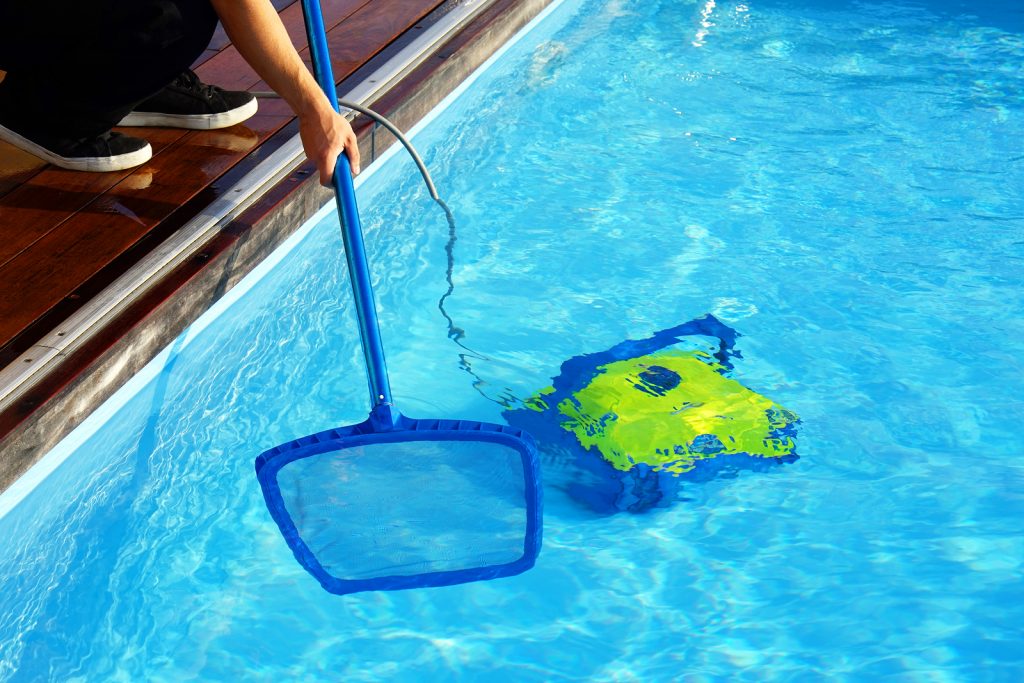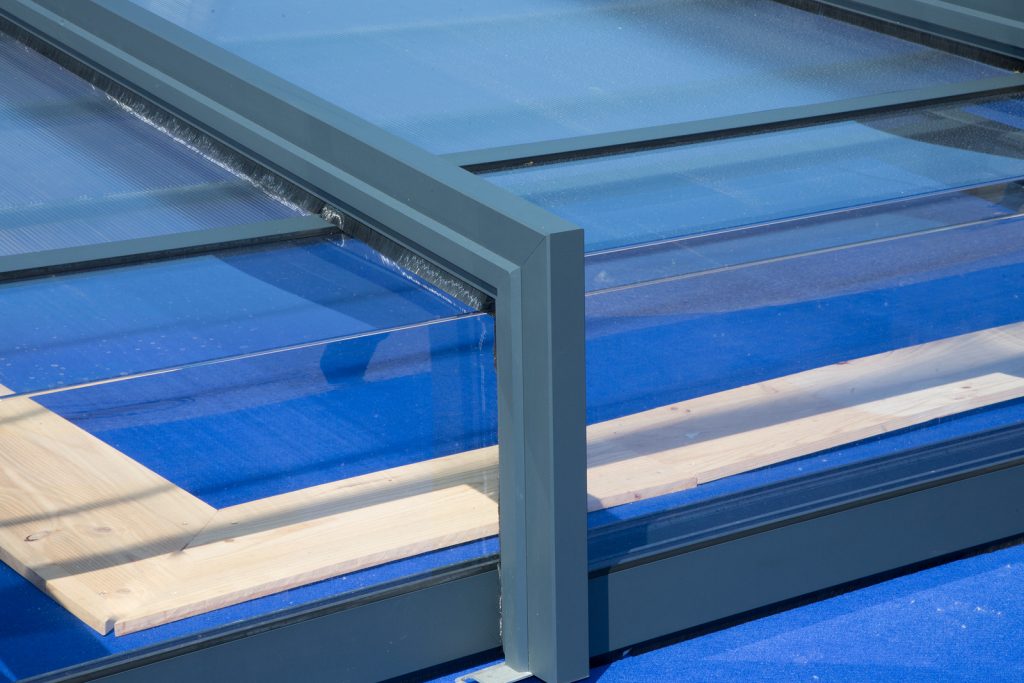Closing a Pool for the Season Step-by-Step
As the leaves change color and the air gets cooler, it’s clear that swimming pool season has just about come to an end. Even those with heated pools are getting ready to close up for the year. However, closing a pool for the season isn’t as easy as tossing a pool cover over it and going about your day. There are several steps and procedures that must be taken in order to protect the pool during the offseason. You want to make sure to close your pool the right way.
Cleaning & Testing
This may seem counterintuitive, but it is very important that a pool is properly cleaned and chemically tested before it is closed for the season. Start off by cleaning the pool walls and floors thoroughly with a pool brush, skimmer, and vacuum. While cleaning the pool, make sure to clear out the pool pump and filter. If you forget to do this, the dirt and debris will sit there all year long. After you’ve finished cleaning, test the pool’s chemistry to ensure that everything is properly balanced.
Pool Chemistry
Before closing a pool for the season, it must be chemically winterized. This involves adding algaecide, and possibly metal sequestrant and enzymes to the water. You can also add a ‘winter pill’ to the pool water, which dissolves slowly over time in order to keep the water clean throughout the offseason. Balancing a pool’s chemistry is a complicated process and, for the best results, should be handled by a trained and certified professional.
Shocking
In addition to balancing the pool chemistry, the water should also be ‘shocked’ the night before it is closed for the year. Shocking a pool is raising the chlorine to 10 ppm in order to kill off most of the bacteria, oxidize bather waste, and clearing up cloudy water. In addition to the chemical balancing process, shocking helps prevent algae growth. Run the pool pump overnight so the shock treatment is distributed evenly throughout the pool.
Pool Accessories
Make sure that all pool accessories are removed before closing a pool for the season. Things like pool toys, thermometers, handrails, and ladders can rust and decay with long-term exposure to the chemicals used during winterization. The pool should be completely bare before it is covered up for the year.
Water Levels
People often assume that the best way to winterize a pool is to drain out all of its water. However, this is actually a bad idea. When the water table in the soil rises, an empty pool can pop out of place in the ground, ruining its structural integrity. For liner pools, removing all the water will damage the liner and require replacement. Instead, the pool water level should be reduced to below the skimmers. This will help prevent the water from overflowing as well as freezing damage. Also, it’s important to periodically check the water level during the off-season to make sure that the rain hasn’t drastically raised it.
Pool Cover
The last step to closing a pool for the season is securing its cover. There are pool covers specifically designed to protect a pool during the off-season. These covers protect the pool from outside contaminants and help maintain its chemical balance. It also helps to use a pool cover pump to remove any water that collects on top. Safety covers also are a barrier to access to prevent debris, animals, and people from getting into the pool over the winter.
Properly Closing a Pool for the Season
It’s important to remember that these steps are just a basic overview to closing a pool. Get an overview on how to properly close a pool for the season at a Certified Pool Operator course. Pool Operation Management offers award-winning, two-day courses in CPO certification. We offer the perfect start to becoming a pool expert. We also offer residential and commercial pool maintenance services, so we can close your pool for you. Contact us today to get started.







